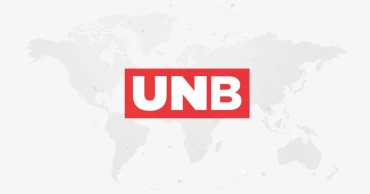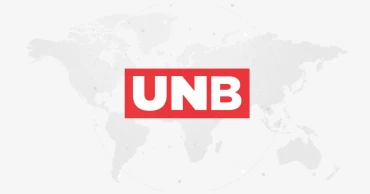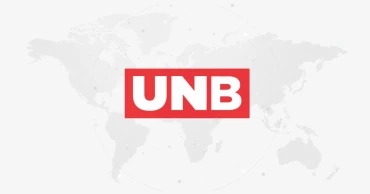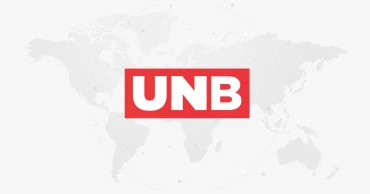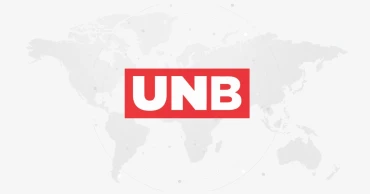Michael Kugelman
Next year’s election to mark major test for post-Hasina Bangladesh: Kugelman
South Asia affairs expert Michael Kugelman has said Bangladesh will go through a major test for a post-Hasina era as the interim government unveiled its plan to host the next national election in February next.
"Bangladesh hasn’t experienced free and fair elections for a long time, and next year’s polls will mark a major test for a post-Hasina Bangladesh," said Kugelman in Foreign Policy’s South Asia Brief.
On Tuesday, Chief Adviser Prof Muhammad Yunus announced that the country will hold elections next February.
The Office of the Chief Adviser on Wednesday sent a letter to the Election Commission requesting it to complete all preparations to hold the next parliamentary elections before Ramadan in February 2026.
With this letter, the formalities of the government's request to the Election Commission to arrange the election have been completed.
In the letter sent to the EC, Chief Adviser’s Principal Secretary M Siraz Uddin Miah requested him to take all necessary measures to arrange a "free, fair, peaceful and festive" national election of the expected quality within the specified time.
On Tuesday, Bangladesh marked one year since mass protests prompted longtime Prime Minister Sheikh Hasina to resign and flee to India.
Washington views its ties with Dhaka through lenses of trade: Michael Kugelman
"Hasina’s departure came after weeks of student-led demonstrations against her authoritarian rule, which prompted the country’s security forces to brutally crack down on protesters, resulting in the death of more than 1,400 people," Kugelman said.
He said Hasina’s ouster has had massive political implications in a country that was ruled by her Awami League for more than 15 consecutive years.
Today, Kugelman said, Bangladeshis are generally happier and freer than they were during the Hasina era, but the "post-revolution honeymoon" is a distant memory.
The country’s interim government, led by Nobel laureate Prof Yunus, has struggled to stabilise the economy and strengthen law and order, he said.
"Meanwhile, as Salil Tripathi writes in Foreign Policy this week, the country’s cycle of retributive politics has continued to persist,' he mentioned.
Indeed, many protest leaders -- some of whom served in the interim government before leaving earlier this year to form a new political party -- have insisted on following through on ambitious structural reforms promised immediately after Hasina’s fall, Kugelman said.
"But progress has lagged, leaving many Bangladeshis frustrated," he observed.
"The election is approaching. If you live away from your home constituency, begin visiting regularly from now. Prepare yourself to help elect the most deserving candidate," Prof Yunus said in his televised speech on Tuesday.
"As you cast your vote, let the faces of those whose fresh blood restored this sacred right appear before your eyes," he said, noting that February is not far away.
Next govt to inherit both domestic policy challenges, growing external worries: Kugelman
Prof Yunus said the days of preparation will pass quickly, and soon, it will be election day.
After so many years of being denied, Prof Yunus said, they will all vote and no one will be left behind.
"Let us all proudly say: On the journey to building a new Bangladesh, I will cast my vote. And it was my vote that helped this country set out on that path," Prof Yunus said.
The Chief Adviser called on every citizen, "Let us pass the first great test in building a new Bangladesh, together, successfully."
6 months ago
Washington views its ties with Dhaka through lenses of trade: Michael Kugelman
South Asia affairs expert Michael Kugelman has said the Trump administration has drastically cut foreign aid and has "little interest" in devoting resources to democracy promotion or nation-building in Bangladesh.
Referring to recent telephone conversations between Chief Adviser Prof Muhammad Yunus and US Secretary of State Marco Rubio, Kugelman said the readouts of the Yunus-Rubio call from both governments suggest Washington now views its ties with Dhaka through the lenses of trade and great-power competition.
Kugelman in Foreign Policy’s South Asia Brief mentioned that the pair spoke about strengthening economic ties and partnering on enhancing security in the Indo-Pacific—the latter of which, for the United States, means countering China.
Both goals present challenges for Dhaka, Kugelman said.
Bangladesh faces a 37 percent US tariff if it does not work out a trade deal with Washington, said the Foreign Affairs expert.
And it has long pursued a nonaligned foreign policy, aiming to balance ties with major powers rather than siding with or against them, Kugelman observed.
Salehuddin proposes full duty withdrawal on 175 products ahead of US trade talks
On Monday, Prof Yunus spoke on the phone with US Secretary of State Marco Rubio, marking one of the highest-level Bangladesh-US engagements to date during the second Trump administration.
The call provides a window into how the United States may approach its relationship with Bangladesh—one that has shifted significantly since Trump returned to office, Kugelman said.
During the final months of the Biden administration, US officials pledged new development aid and technical assistance for reforms to an interim government looking to rebuild democracy in Bangladesh after former Prime Minister Sheikh Hasina fled the country amid mass protests last August.
During the phone call, both sides affirmed their ‘shared commitment’ to deepening economic ties between the two countries.
The US Secretary of State and Chief Adviser also affirmed their shared commitment to ‘enhancing security and stability’ throughout the Indo-Pacific region.
“The Secretary and Chief Adviser affirmed their shared commitment to deepening economic ties between the United States and Bangladesh and to enhancing security and stability throughout the Indo-Pacific region,” said Spokesperson at the US Department Tammy Bruce after the telephone conversations.
In April this year, Chief Adviser Prof Yunus held an emergency meeting with top experts, advisers and officials, giving necessary directives to deal with the US tariff issue.
Finance adviser introduces new tariff, SD structure with eye on US trade deal
The United States had announced a 37-percent tariff on imports from Bangladesh as part of President Donald Trump's sweeping new "Reciprocal Tariffs" policy.
The government hopes that their ongoing discussion with the US government is expected to help address the tariff issue.
A follow-up meeting is scheduled to take place in the US on July 8.
7 months ago
UNB hosts district correspondents’ conference; highlights fair journalism
The annual District Correspondents’ Conference of United News of Bangladesh (UNB) 2025 took place on Saturday at Cosmos Centre in Dhaka, focusing on neutrality in journalism and the evolving media landscape.
Renowned photojournalist and educator Shahidul Alam inaugurated the daylong event with a session on photojournalism, emphasising accuracy, quality and creativity in capturing news images.
Two-day fact-checking workshop concludes at UNB
Alam, the founder of Drik Picture Library and Pathshala, also analysed photographs by both global and local photographers.
UNB Emeritus Editor Enayetullah Khan underscored the agency’s steadfast commitment to neutrality, stating that despite transformations in Bangladesh's media landscape, UNB has remained unaffected.
He highlighted that public trust in UNB is rooted in its dedication to factual reporting.
UNB Executive Editor Nahar Khan welcomed the participants and discussed the evolving challenges and opportunities in journalism.
She stressed the importance of integrity and innovation in the profession, citing examples of impactful reporting that prompted swift government action.
The conference featured sessions on environmental reporting, fact-checking, media law and discussions with newsroom members and district correspondents.
Among the notable speakers were Michael Kugelman, Director of the South Asia Institute at the Wilson Center; media personality Afsan Chowdhury; WildTeam CEO Dr Anwarul Islam; Supreme Court lawyer Zahirul Islam Musa; Cosmos Goup DMD Masud J. Khan; UNB Advisory Editor Farid Hossain; Editor Mahfuzur Rahman; and Dhaka Courier Executive Editor Shayan S Khan.
Two-day fact-checking training begins at UNB
Three UNB district correspondents—Hossain Malik (Chuadanga), Sheikh Didarul Alam (Khulna), and Saiful Islam Shilpi (Chattogram)—were recognised for their outstanding performance in 2024.
Around 100 journalists from across the country, including Dhaka, attended the event.
1 year ago
US to view Bangladesh through commercial, geopolitical lenses: Kugelman
Stressing that US President Donald Trump’s foreign policy is going to be staunchly transactional, instead of values-based, American scholar Michael Kugelman on Wednesday said the new administration in Washington will view its relationship with Bangladesh through commercial and geopolitical perspectives.
“At least initially, we can assume the administration, when it focuses on Bangladesh, will apply two lenses - commercial and geopolitical,” said Kugelman, Director of the South Asia Institute at the Wilson Center in Washington, adding that trade would remain on the table as part of bilateral ties which have remained fairly constant, and that will likely continue.
Kugelman, America’s leading South Asia specialist, made the remarks while delivering his keynote address at a seminar on “Bangladesh-US Relations: Prognosis for the Future” at the Foreign Service Academy in Dhaka.
Cosmos Foundation, the philanthropic arm of the Cosmos Group, hosted the event as part of its “Distinguished Lecture Series,” where the keynote speaker shared his own views in three parts - where they came from with US-BD relations, where they are now, and where they might be going.
He ended by laying out what he feels to be the most unrealistic and the most realistic pathways for partnership with the second Trump administration.
Welcome remarks at the event were delivered by Cosmos Foundation Chairman Enayetullah Khan, while the session was moderated by renowned scholar-diplomat Dr Iftekhar Ahmed Chowdhury, former Adviser on Foreign Affairs to Bangladesh Caretaker Government.
President of the Bay of Bengal Institute and Adviser Emeritus of Cosmos Foundation, former Ambassador Tariq Ahmad Karim, President of Bangladesh Enterprise Institute former Ambassador Humayun Kabir, and International Relations Prof at Jahangirnagar University Shahab Enam Khan, among others, spoke on the occasion as discussants.
Sharing some words about the silver linings in place right now, Kugelman said Bangladesh is not going to be on Trump’s radar, but maybe that is a good thing for now, as the country may be well served by staying off it.
1 year ago
Hasina’s return to power will be welcomed in Global South: Policy analyst Kugelman
Director of the South Asia Institute at Wilson Center in Washington, D.C. Michael Kugelman has said in South Asia and the broader Global South, Bangladesh Awami League President Sheikh Hasina's return will be welcomed.
He cited her focus on economic growth, connectivity, nonalignment, climate change, global peacekeeping and hosting of Rohingyas.
Also read: Bad blood will linger between Dhaka and the West but Hasina’s return will be viewed more positively in the region: South Asia policy analyst Kugelman
"Easy to overlook this with so much focus on what the West thinks," he said.
Within hours after Bangladesh’s election result was declared, the Indian, Russian, and Chinese envoys all extended their congratulations to Prime Minister Sheikh Hasina, Kugelman said.
Also read: ‘US wanted to act proactively to send tough message’: Kugelman
"If anyone is surprised by this, there’s no reason to be. They all (not just India) have long viewed her as a key partner," he shared on X, formerly known as Twitter.
"And guess what other country’s ambassador has now congratulated Hasina? Pakistan. Perhaps the only country in South Asia that might be a bit uncomfortable about her return. But still willing to accept the election result," Kugelman said in a separate message posted from his verified X account.
Also read: AL retains significant level of support because of success stories, says South Asia policy analyst Michael Kugelman
2 years ago
Bad blood will linger between Dhaka and the West but Hasina’s return will be viewed more positively in the region: South Asia policy analyst Kugelman
With the opposition BNP boycotting the January 7 polls, Prime Minister Sheikh Hasina and her party, Awami League, are all but guaranteed a fourth consecutive term.
Five countries in South Asia will hold elections this year, and the first — in Bangladesh on Sunday (January 7) — features the least uncertainty.
Many Western countries value their trade ties with Bangladesh, given its powerful garment industry, and perceive it as a strategically significant state situated in the heart of the Indo-Pacific.
PM Hasina to address election rally in Narayanganj Thursday
But they cannot rule out punitive post-election steps, including trade sanctions. Either way, bad blood between Dhaka and the West — especially Washington — will certainly linger post-election, according to Foreign Policy’s South Asia Brief by Michael Kugelman.
By contrast, Hasina’s return will be viewed more positively in South Asia, said the South Asia policy analyst.
Kugelman, Director of the South Asia Institute at Wilson Center in Washington, DC, said that Sheikh Hasina enjoys strong support from India, which, like the Awami League, characterizes the opposition as a potentially destabilizing threat that could lead to the return of Islamism in Bangladesh.
Jan 7 general election will be a milestone in country’s democratic history: PM Hasina
Hasina’s push for connectivity resonates with Bhutan, India, Nepal, and Sri Lanka, all of whom are pursuing new initiatives with Bangladesh.
The strong economic growth under her offers new opportunities for trade within a region where it lags, said the analyst.
Finally, her policy of balancing relations with both Beijing and New Delhi converges with that of the region’s other non-aligned states, said Kugelman.
Although foreign countries play an outsized role in Bangladeshi politics, it will be up to the people of Bangladesh to determine the country’s future direction, said the International Crisis Group on Thursday in a new report.
President casts vote via postal ballot, encourages nationwide participation in Jan 7 election
Based on the decisions that the AL and BNP take, the public will decide either at the ballot box or on the streets, it said in its Asia Report, "Beyond the Election: Breaking Bangladesh’s Political Deadlock."
Although it may be impossible before polling day, it is incumbent on
both sides to enter talks as early as possible to avoid a lengthy and potentially deadly political showdown, reads the report.
Foreign governments, for their part, should work together to cajole the two sides into negotiations aimed at forging a new political settlement.
Given the level of domestic opposition it is facing, alongside economic and geopolitical headwinds, the AL has reasons to seek a compromise.
Negotiations to rebuild relations between the main political forces and put Bangladesh back on to the path of democracy, peace and stability will require concessions from both sides, said the Crisis Group.
The country’s foreign partners, particularly the US and India, should actively encourage them in that direction, it said.
“The 7 January election will not resolve Bangladesh’s political crisis. Although it’s too late to postpone the vote, a flawed election provides only more reason to redouble efforts to get the ruling Awami League and its opponents talking again after the poll," said Crisis Group's Asia Director, Pierre Prakash.
“Since the 2008 election that brought the Awami League to power, the country has not held a credible national election. And while Bangladesh has made significant progress in some areas over the past 15 years, most notably on the economic front and in reducing poverty, it has experienced continued political violence and repression of civil liberties," Prakash added.
A new political settlement between the two major parties would help to put Bangladesh back on to the path of democracy, peace and stability, Prakash said.
"It could avert further political violence – in the past few months alone, dozens of people have been killed. It would also help to balance Bangladesh’s international relations and improve its economic prospects,” said the Crisis Group's Asia director.
Read more: US wants a ‘fair and transparent’ legal process regarding case against Prof Yunus
2 years ago
‘US wanted to act proactively to send tough message’: Kugelman
Full transcript of UNB’s email interview with Michael Kugelman (MK), director of the South Asia Institute at the Wilson Center in Washington, in the wake of the US announcing it was taking steps to impose the first batch of visa restrictions on Bangladeshi law enforcement officials, and members of the ruling party and political opposition:
UNB: First of all, what do you make of the timing? There was an impression earlier that these restrictions would most likely be imposed after the election, as they were in the case of Nicaragua and Zimbabwe. What do you think Washington is trying to signal by coming out 3 months prior and announcing the first restrictions? Is it dissatisfaction with how the overall preparations are going?
MK: I think the US wanted to act proactively, to send a tough message. In effect: This is important to us, we mean business, we want that free and fair election, and here's what we'll do in the weeks leading up to it when we see someone trying to imperil that outcome. Keep in mind that the Biden administration genuinely wants a close relationship with Dhaka, and so it doesn't want to be in the tough position of having to decide whether to review the future of the relationship if the election is deemed to be unfree and unfair. For Washington, the goal is to give the full Bangladesh state—the political class, law enforcement, media, business leaders, and so on—the strongest possible incentive to ensure a free and fair election, so that the US doesn't have to make that difficult decision.
Read: Visa restrictions imposed upon 'careful review of evidence': US embassy
UNB: Although US law doesn't allow it, to the extent that we're allowed to speculate, do you think there are some really big fish that would have come under the restrictions? Without them it may be futile don't you think?
MK: I don't know the identities of the people targeted, though indeed a stronger message would be sent if some big fish were among them.
UNB: Visa restrictions are not the same of course, as Magnitsky sanctions. Do you think these individuals, whoever they are, should now worry that they might be brought under Magnitsky, say if they turn out to be repeat offenders in the days ahead?
MK: I think this depends on who the people are that were targeted. If some of those targeted are business leaders and others that depend on transactions with the US, then one can't rule out Magnitsky. That said, as I understand them, these visa restriction policies are specific in scope and don't stipulate—at least not publicly—that they could expand into wider restrictions that would encompass Magnitsky.
Read: US taking steps to impose first batch of visa restrictions
UNB: A US delegation is due next month to assess the situation on the ground for an observer mission during the election. The EU has already said it won't send observers after its own team came and assessed the conditions. How much of a blow do you think it would be if the US also says no? Do you see a 'No' as a rejection of the process?
MK: A decision not to send observers can be spun differently depending on where you sit politically. Certainly, for the opposition and other government critics, not sending observers can be pointed to as an indication of the international community having lost faith in the idea of a free and fair election and not wanting to be part of an electoral process that it feels is destined to fail. But the government could spin it as a success, that the international community must be sufficiently confident about the election being free and fair if it has no need to have observers in place.
Read: 'Nothing to lose' from visa restrictions: Shahriar Alam
UNB: Finally, do you see the possibility of wider sanctions on say trade or other things, depending on the quality of the election?
MK: I do think the administration will review the future of the relationship if the election is deemed to be rigged. This could result in a decision to downgrade some aspects of the relationship, and possibly new sanctions. But the administration will need to be careful. It truly values its partnership with Bangladesh, which has grown in recent years, especially on the trade side. And against the backdrop of rapidly intensifying great power competition, Bangladesh, as a non-aligned state sitting astride the Indian Ocean, has great strategic importance for Washington. There are also influential actors, like the US-Bangladesh Business Council, which would likely push back against trade sanctions and any plan to rein in commercial relations. So the US would need to be cautious in its approach.
Read more: A big moment for Bangladesh and its relations with US: South Asia specialist
2 years ago
A big moment for Bangladesh and its relations with US: South Asia specialist
Director of the South Asia Institute at Wilson Center in Washington, D.C. Michael Kugelman has said it may be more difficult for the US to make a “conclusive judgment” on the upcoming national election results in Bangladesh if opposition BNP boycotts it.
“Because if the Awami League is running against itself, if it gets 98% of the vote, you can't say that those votes were taken away from the BNP. So it's all very unsettled,” he told UNB in an interview, noting that the Biden administration wants a free and fair election in Bangladesh and at the end of the day, the US wants to have a good relationship with Bangladesh.
The government of Bangladesh keeps reiterating that it is committed to holding a “free, fair and peaceful” election in the country. The next national election is likely to be held in December this year or January next.
EU expects next election in Bangladesh to be free, fair and free from violence: Gilmore in exclusive interview
2 years ago
AL retains significant level of support because of success stories, says South Asia policy analyst Michael Kugelman
The Awami League retains a “significant level of support” and there is still a lot for the government in Bangladesh to point to as a success story amid current challenges, says Michael Kugelman, director of the newly created South Asia Institute at the Wilson Center in Washington, D.C.
“We have to keep in mind that the ruling party Awami League has been in power since 2009 and it retains a significant level of support,” he said, noting that the party has been able to bring success stories on the economic front and in countering terrorism.
Kugelman said that even if someone talks about all the bad things happening in Bangladesh, the bottom line is that there is still a lot for the government in Bangladesh which helps it sustain a significant level of success and there are people who see reasons to support it.
Mark Goldberg recently sat down with Kugelman to discuss the recent protests in Bangladesh. The Foreign Policy magazine published the podcast recently.
Read more: Bangladesh has changed a lot under Awami League govt: PM Hasina
Responding to a question, Kugelman said Bangladesh has been a regional success story for its economic growth. “It's a global success story.”
He described what had happened over the last few months, including consequences of the Russia-Ukraine war, high level of inflation, rising fuel cost and responses from the government like rationing electricity amid power shortages.
Kugelman said disruption in electricity supply was a major strain on the economy and sudden fall in economic productivity was an opportunity for the opposition to take to the street.
Corruption, one of the realities in Bangladesh, scandals in the financial sector could be another trigger for the opposition, he said, adding that economic problems and corruption gave the opposition opportunity to draw more attention.
Read more: Awami League never wasted a single taka of Bangladesh’s money: PM
Kugelman, however, said the protests launched by the opposition parties “was not a mass protest” but a partisan protest.
The foreign affairs expert said the government had the opportunity to explain the “temporary consequences” of external factors.
Kugelman said Bangladesh has demonstrated success in the area of counterterrorism and noted that there was a period when it was a significant problem in the country which had experienced series of deadly attacks.
He said the Awami League government took initiatives to crackdown really hard on the militants, and terrorism has not been a problem in Bangladesh over the last few years. “That’s another success story.”
Read More: AL always fulfills election pledges made to the nation: PM Hasina
Bangladesh has become a much bigger player on the global stage, including its role in peacekeeping operations and with its non-aligned and balanced foreign policy, he observed.
Responding to a question on “democratic backsliding” he said it is important to look back at the broader history of Bangladesh.
In the past, he said, BNP (when it was in power) was resorting to similar types of tactics and there were crackdowns as well as reports of enforced disappearances.
Kugelman said many things that are happening today were also happening when BNP was in power.
Read More: AL is party of people, no force can dislodge it from power: PM Hasina
He said “undemocratic tactics” happen in many countries, including Bangladesh and elsewhere in South Asia, and described them as “hybrid democracy”.
Responding to another question, he said he does not think that there will be a Sri Lanka-like situation in Bangladesh as there are safety measures in the latter.
Kugelman said Bangladesh's economy is much more resilient than Sri Lanka’s has been.
He also responded to questions on Bangladesh’s next national election which he hoped will be held as per the constitution.
Read More: AL candidate Ripon wins Gaibandha-5 by-election
3 years ago




